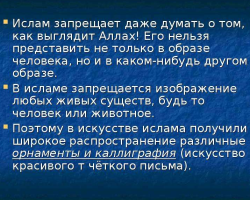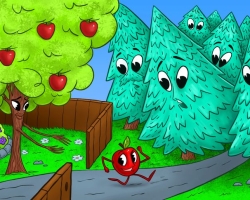Winged expressions or phraseological units are a typical feature of the Russian language, nowhere else you will find such an abundance of folk wisdom, gleaned from the depths of centuries. To observe all kinds of life situations, analyze them and embody them as brief, but very well-aimed metaphors-the prerogative of a Russian person, as it really happened among our Slavic ancestors-not known.
Content
- "Without hind legs": The origin of phraseology
- What does it mean, how to understand the expression "without hind legs"?
- “Without hind legs”: short meaning, figurative meaning, explanation of phraseology in one word
- What synonym can be chosen for phraseologism "without hind legs"?
- How to make a sentence with phraseology "without hind legs"?
- Video: Where did the expression come from?
Probably, everyone helped people helped a sharp mind, ingenuity and an innate sense of humor. Many of Idiom, who have survived to our days, have lost their original meaning, but this does not concern the phraseological unit “sleep without hind legs”, the meaning of which has not changed at all for centuries.
"Without hind legs": The origin of phraseology
- Many expressions arose in the process of observing animals, their characteristic habits. The phraseology "without hind legs" also subtlely thinned the behavior of horses and dogs during sleep.
- It is not true that horses are sleeping only standing. If the horse is exhausted, it can simply collapse from overstrain and instantly fall asleep to restore its strength as soon as possible. During the rest, the horse involuntarily relaxes the hind legs. Because of this, when awakening, he does not manage to quickly rise, because he can immediately perform coordinated movements only with front legs. And the hind legs at this time seem to live their lives and do not want to obey him.
- The same can be said about dogs. Sometimes you can hear how, with a certain share of irony, they talk about a very tired person: "He was exhausted like a dog, and now he sleeps without hind legs." Dogs in this regard are similar to horses, they also do not immediately obey the hind legs after sleep.

- It was precisely because of this characteristic feature of dogs and horses that this stable expression arose, meaning that fatigue It can cause such a strong dream, after which it is not possible to quickly jump to your feet.
What does it mean, how to understand the expression "without hind legs"?
- Nowadays Phraseologism "without hind legs" used when they talk about Strongly, almost a sleepless man.
- When it comes to animals, then this refers only to the fatigue of the physical plan. And if this idiom is used in relation to a redundant, exhausted person who has fallen asleep severe strong sleep, then in this case we can talk about fatigue not only of physical, but also mental or emotional.
“Without hind legs”: short meaning, figurative meaning, explanation of phraseology in one word
- If the speech uses the phrase “sleep without hind legs”, then we are talking about an exhausted, exhausted man who, due to fatigue, fell asleep in one position and does not even move in a dream.
- The portable meaning of phraseology "Without hind legs."If a person sleeps, as they say, without hind legs - this means that he is immersed in a strong, trouble -free dream. Fatigue is physical or moral, so piled on it that there is not even strength to turn over from side to side for greater convenience.

What synonym can be chosen for phraseologism "without hind legs"?
- What synonym can be chosen for phraseologism "without hind legs"? You can, for example, say this: exhausted, tired, exhausted, exhausted, overwork, tight, sound, sleeping person.
How to make a sentence with phraseology "without hind legs"?
- Margarita worked all day, not turning hands, but then i slept without hind legs.
- In the resort town in the very heat, the real Spanish siesta reigned - all without exception we slept in their beds without hind legs.
Learn also about the origin and meaning of such phraseological units:
- "Without the king in the head"
- "Without a year week"
- "Sit in one's hands"
- "Every family has its black sheep"
- "Handyman"
- "You can't spill water"







